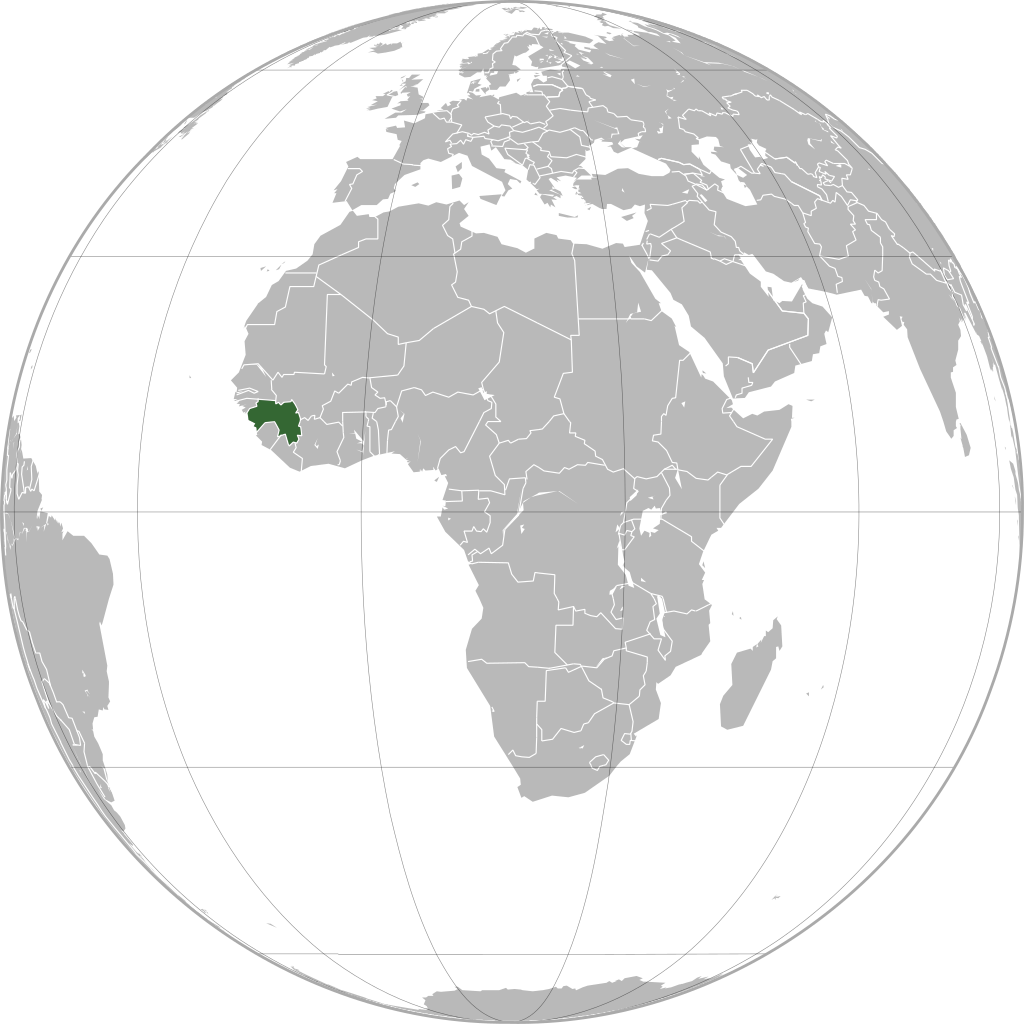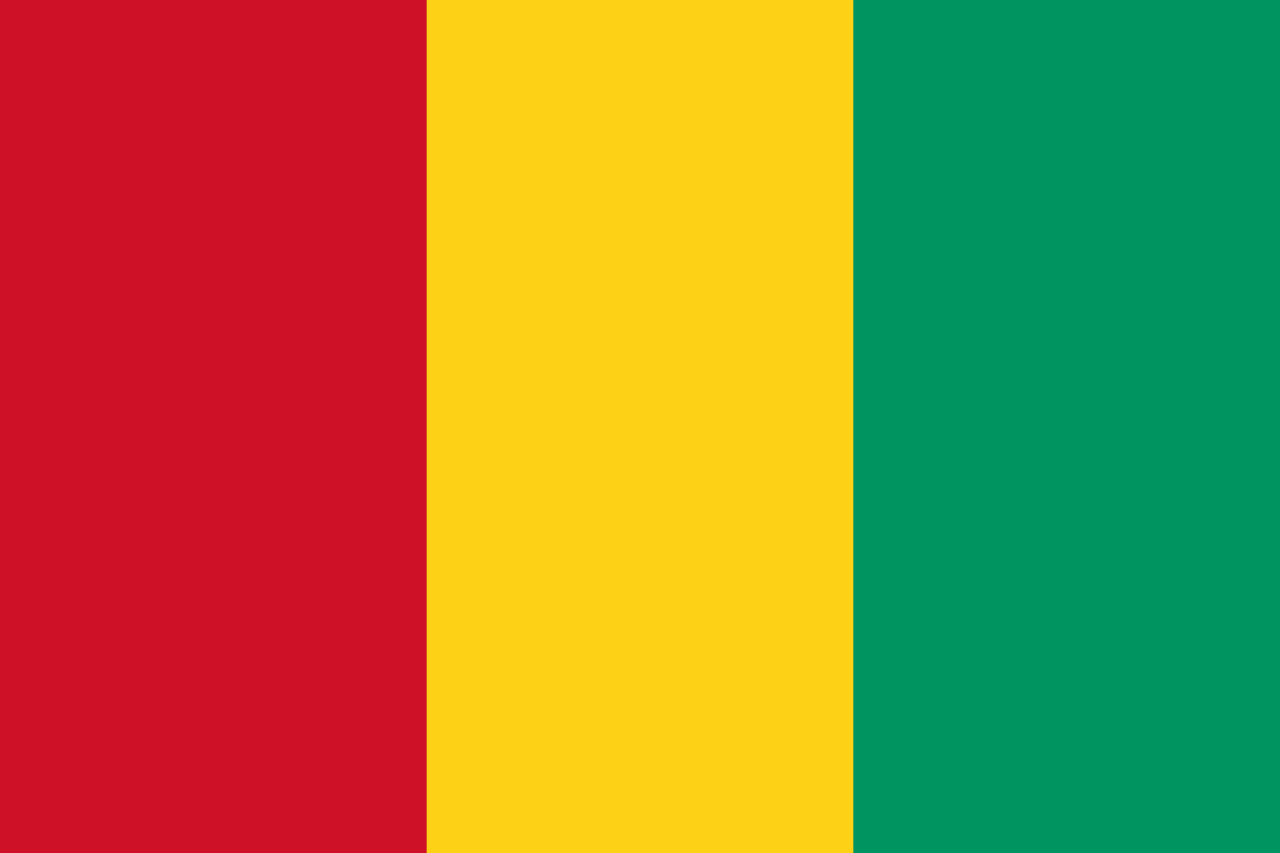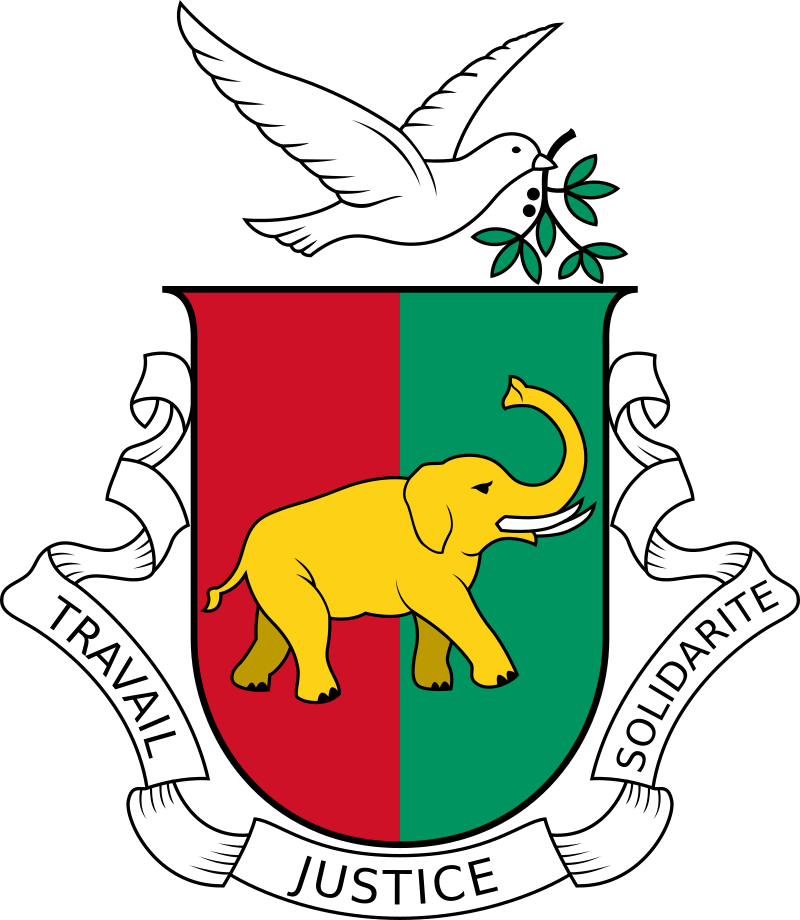People's Revolutionary Republic of Guinea (1958–1984): Difference between revisions
More languages
More actions
m (Ledlecreeper27 moved page People's Revolutionary Republic of Guinea to People's Revolutionary Republic of Guinea (1958–1984): Added years.) |
(Expanded on the government structure of Guinea.) Tag: Visual edit: Switched |
||
| Line 8: | Line 8: | ||
|official_languages=[[French]]| capital = [[Conakry]] | |official_languages=[[French]]| capital = [[Conakry]] | ||
| largest_city = capital | | largest_city = capital | ||
| government_type = [[Unitary state|Unitary]] | | government_type = [[Unitary state|Unitary]] semi-presidential party-state | ||
| population_estimate = 5,470,716 | | population_estimate = 5,470,716 | ||
| population_estimate_year = 1985 | | population_estimate_year = 1985 | ||
| leader_title1 = President and Secretary General of the PDG-RDA | |currency=1959 -1971:<br>[[Guinean Franc]]<br>1971-1985:<br>[[Guinean Syli]]|today=Republic of Guinea| leader_title1 = President and Secretary General of the PDG-RDA | ||
| leader_name1 = [[ | | leader_name1 = [[Sékou Touré]] | ||
| leader_title2 = Prime Minister | | leader_title2 = Prime Minister | ||
| leader_name2 = Louis Lansana Beavogui | | leader_name2 = Louis Lansana Beavogui | ||
|mode_of_production=[[Socialism]]|year_start=1958|year_end=1984|motto=Work, Justice, Solidarity|national_anthem=Freedom|legislature=National Assembly}}The '''People's Revolutionary Republic of Guinea''', commonly known as '''Guinea''', was a [[socialist state]] in [[West Africa]] from 1958 to 1984 established by Sekou | |mode_of_production=[[Socialism]]|year_start=1958|year_end=1984|motto=Work, Justice, Solidarity|national_anthem=Freedom|legislature=National Assembly|era=Cold War}}The '''People's Revolutionary Republic of Guinea''', commonly known as '''Guinea''', was a [[socialist state]] in [[West Africa]] from 1958 to 1984 established by Sekou Touré following the rejection of the French Community during the 1958 constitutional referendum, paving the way for independence across West Africa. | ||
== History == | == History == | ||
== Government == | == Government == | ||
=== Concept of the Party State === | |||
=== Basic committee of the PDG === | |||
The basic committee is the Local Revolutionary Authority (PRL), whose executive is composed of the Mayor, the Deputy Mayor, the four directors of the local authorities and the chairwoman of the Special Women’s Committee. The Mayor is the chair of the PRL executive and is tasked with the organization and supervision of the the activities of local authorities. The general duties of the Mayor is the maintenance of economic and legal discipline, presenting and managing the PRL budget, and safeguarding the PDG's monopoly of political power. Among their duties of signing marriage and death certificates, they are also police officers and preside at sessions of the People's Court. In the event of the mayor's absence, the Deputy Mayor takes his/her place and assumes authority over his/her duties.<ref name=":0">[https://unesdoc.unesco.org/ark:/48223/pf0000035975 Cultural policy in the Revolutionary People's Republic of Guinea]</ref> | |||
The PRL executive is divided up into the authorities of administration, economy, public works and communications, and social affairs. The local administrative authorities were in charge of managing the flow of information and the press, carrying out the local census, maintaining and managing local archives, organizing PDG and PRL meetings, as well as keeping track of records ranging from births, deaths, marriages and judicial proceedings. The local economic authorities managed the production, marketing and fair distribution of all goods and services. Local authorities for public works and communications were tasked with the development and regulation of all postal services and telecommunications. Last are the local authorities for social affairs, which were responsible for the Revolutionary Education Centers (CER) of the PRL, literacy training, scientific experimentation, social assistance, funeral services, maintaining cemeteries, as well as organizing and supervising events surrounding sports, culture and art.<ref name=":0" /> | |||
Each PRL authority was chaired by a Chief Officer, who would be assisted by a technical work committee. Technical work committee members would be nominated by the chief officers of said authority and appointed by the Mayor. Technical work committees were then divided into numerous, specific, subcommittees.<ref name=":0" /> | |||
Ran under the association of the PRLs were the special youth and women committees, which were tasked with organizing youth and empowering women in Guinean political society. Within each local garrison contained a Military Committee (CUM), which was the basic political organization corresponding to the PRLs. This was done as a means of tightening the grip of the PDG on the Guinean Army, thus completing Sekou Touré's "Party State."<ref name=":0" /> | |||
=== Party section === | |||
=== Party federation === | |||
=== The central committee === | |||
== Administrative divisions == | == Administrative divisions == | ||
Revision as of 23:57, 2 May 2023
| People's Revolutionary Republic of Guinea | |
|---|---|
| 1958–1984 | |
Motto: Work, Justice, Solidarity | |
Anthem: Freedom | |
 | |
| Capital and largest city | Conakry |
| Official languages | French |
| Dominant mode of production | Socialism |
| Government | Unitary semi-presidential party-state |
• President and Secretary General of the PDG-RDA | Sékou Touré |
• Prime Minister | Louis Lansana Beavogui |
| Legislature | National Assembly |
| History | |
• Established | 1958 |
• Dissolution | 1984 |
| Population | |
• 1985 estimate | 5,470,716 |
| Currency | 1959 -1971: Guinean Franc 1971-1985: Guinean Syli |
| Today part of | Republic of Guinea |
The People's Revolutionary Republic of Guinea, commonly known as Guinea, was a socialist state in West Africa from 1958 to 1984 established by Sekou Touré following the rejection of the French Community during the 1958 constitutional referendum, paving the way for independence across West Africa.
History
Government
Concept of the Party State
Basic committee of the PDG
The basic committee is the Local Revolutionary Authority (PRL), whose executive is composed of the Mayor, the Deputy Mayor, the four directors of the local authorities and the chairwoman of the Special Women’s Committee. The Mayor is the chair of the PRL executive and is tasked with the organization and supervision of the the activities of local authorities. The general duties of the Mayor is the maintenance of economic and legal discipline, presenting and managing the PRL budget, and safeguarding the PDG's monopoly of political power. Among their duties of signing marriage and death certificates, they are also police officers and preside at sessions of the People's Court. In the event of the mayor's absence, the Deputy Mayor takes his/her place and assumes authority over his/her duties.[1]
The PRL executive is divided up into the authorities of administration, economy, public works and communications, and social affairs. The local administrative authorities were in charge of managing the flow of information and the press, carrying out the local census, maintaining and managing local archives, organizing PDG and PRL meetings, as well as keeping track of records ranging from births, deaths, marriages and judicial proceedings. The local economic authorities managed the production, marketing and fair distribution of all goods and services. Local authorities for public works and communications were tasked with the development and regulation of all postal services and telecommunications. Last are the local authorities for social affairs, which were responsible for the Revolutionary Education Centers (CER) of the PRL, literacy training, scientific experimentation, social assistance, funeral services, maintaining cemeteries, as well as organizing and supervising events surrounding sports, culture and art.[1]
Each PRL authority was chaired by a Chief Officer, who would be assisted by a technical work committee. Technical work committee members would be nominated by the chief officers of said authority and appointed by the Mayor. Technical work committees were then divided into numerous, specific, subcommittees.[1]
Ran under the association of the PRLs were the special youth and women committees, which were tasked with organizing youth and empowering women in Guinean political society. Within each local garrison contained a Military Committee (CUM), which was the basic political organization corresponding to the PRLs. This was done as a means of tightening the grip of the PDG on the Guinean Army, thus completing Sekou Touré's "Party State."[1]


